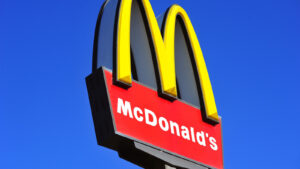The past few years have seen several breakthroughs in the field of weight-loss drugs, as the FDA moved to approve two new medications that promise to help people shed pounds without major side effects. These drugs, called Liraglutide and Semaglutide, work by mimicking a hormone that regulates appetite and blood sugar levels, and they can help people lose up to 15% of their body weight in a year, according to clinical trials. This has led to the rise of stocks to sell that go against this trend.
The growing popularity and commercialization of these drugs will have a significant impact on consumer preferences for certain foods and beverages, as people will be more conscious of their calorie intake and health. This will create challenges for some companies that rely on selling high-calorie and high-sugar products.
Below are three stocks to sell that could be negatively affected by the weight-loss drug trend.
Coca-Cola (KO)

The Coca-Cola Company (NYSE:KO), the world’s largest beverage producer and distributor, is already facing declining sales volumes due to changing consumer tastes and increased competition from healthier alternatives. If you take a look at Coca-Cola’s revenue growth over the years, it has not been consistent by any metric. From 2013 to 2019, the company faced a long period of consecutive revenue decline only to have growth pick up in the early 2020s. However, recent revenue growth has been attributed to price hikes rather than strong selling volumes.
As prices normalize, the weight-loss drug trend could further erode the famed beverage market share, as people will opt for water, tea, or low-calorie drinks instead of sugary sodas, and Coca-Cola’s efforts to diversify its portfolio and invest in innovation may not be enough to offset the decline in its core business.
With shares already down 3.3% in the past twelve months and having plummeted 12.0% year-to-date, investors ought to consider readjusting their portfolio allocations before the damage gets worse.
McDonald’s (MCD)

McDonald’s (NYSE:MCD) fast-food giant is another victim of the health-conscious consumer movement. Although McDonald’s has tried to offer more salads, wraps, and plant-based options, its main products are still burgers, fries, and nuggets. As many already know, these items are high in sodium and calories, made with controversial ingredients, and, thus, will probably not appeal to people who are taking weight-loss drugs that will effectively reduce their appetite for calorie intake.
Moreover, McDonald’s has similarly suffered from a period of anemic revenue growth due to changes in consumer preferences and wider awareness of the dangers of fast food. From 2014 to 2018, McDonald’s revenues declined by 22.5%, similar to what we have seen with Coca-Cola during the same period.
In 2023, McDonald’s has successfully spurred quarterly revenue growth with new marketing trends such as the “Grimace Birthday Meal,” but this is more likely to be an aberration rather than a clear return to form for McDonald’s. Shares have given lukewarm performance since the start of the year, and investors should not count on a rebound as the secular trends away from fast food continue to abound.
Hershey (HSY)

The chocolate marker Hershey (NYSE:HSY) makes the final entry on my list. Though the company is well-known for iconic brands such as Hershey’s, Reese’s, and Kit Kat, these products are also high in sugar and calories, and could possibly lose favor among consumers who are taking weight-loss drugs and want to reduce their sugar intake.
In recent fiscal quarters, price increases, rather than increases in selling volume, have pushed Hershey’s revenue growth upward. The chocolate company’s second-quarter earnings report in 2023 is indicative of this trend. Sure, revenues increased Y/Y by 5% but volumes compressed by 2%, indicating much of the revenue growth was driven by inflationary pricing. The company expects volumes to be lower for the second half of 2023 as well, and as consumers, particularly weight-loss patients, continue shifting their eating preferences away from sweets, Hershey’s revenues could fall back into Y/Y decline. This makes it one of those stocks to sell.
On the date of publication, Tyrik Torres did not have (either directly or indirectly) any positions in the securities mentioned in this article. The opinions expressed in this article are those of the writer, subject to the InvestorPlace.com Publishing Guidelines.
